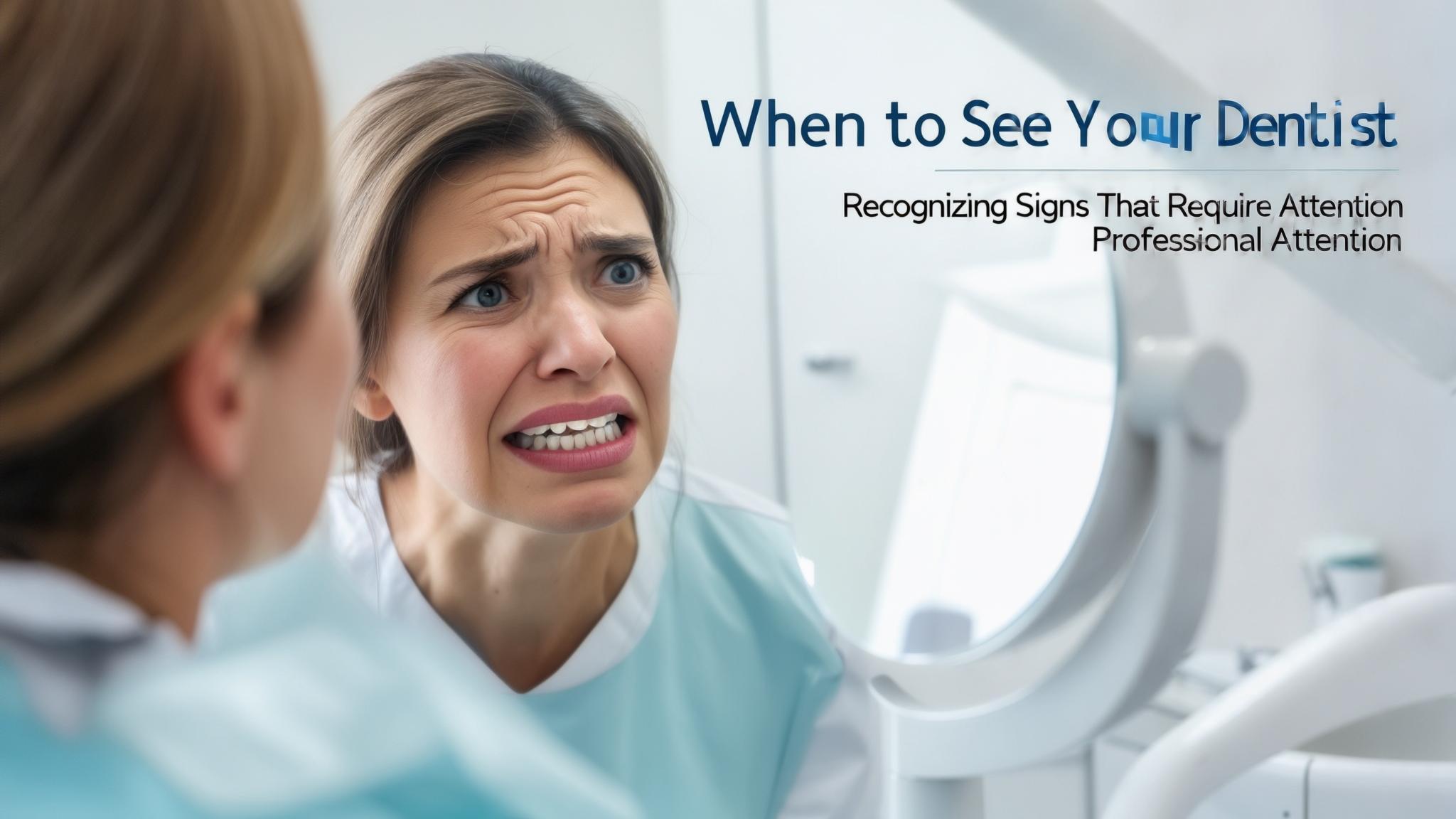Why Regular Dental Check-Ups Matter
Imagine your mouth as a bustling city. Just like a city needs regular maintenance to keep running smoothly, our teeth and gums require consistent care to stay healthy. Regular dental check-ups are essential for maintaining oral health, much like routine car maintenance prevents breakdowns. They help catch issues before they become serious problems.
Common dental issues include cavities, gum disease, and tooth decay. These problems often start small and can go unnoticed without professional evaluation. This article will guide you through the signs that indicate when it's time for a dental visit, ensuring your smile remains bright and healthy.
Understanding Dental Health
Dental health refers to the overall condition of your teeth, gums, and mouth. It's an integral part of your overall well-being. Maintaining good dental hygiene—through regular brushing, flossing, and dental visits—is crucial. Neglecting dental issues can lead to severe consequences, including infections, tooth loss, and even systemic health problems.
Ignoring dental health is like ignoring a leaky roof; eventually, the damage can spread, becoming more challenging and costly to repair.
Common Signs That Indicate the Need for a Dental Visit
Persistent Tooth Pain
If you've ever experienced tooth pain, you know how disruptive it can be. This pain can be sharp, throbbing, or a constant sensitivity, often indicating underlying issues like cavities, abscesses, or gum disease. Think of it as your mouth's way of waving a red flag.
Swollen or Bleeding Gums
Healthy gums are firm and pink. If yours are swollen or bleed easily, it may be a sign of gum disease, such as gingivitis or periodontitis. These conditions can lead to more severe issues if left untreated.
Bad Breath (Halitosis)
Persistent bad breath isn't just a social nuisance; it can indicate poor dental hygiene or underlying health issues. Often, it's a sign that bacteria are thriving in your mouth, possibly due to gum disease or cavities.
Loose or Shifting Teeth
Your teeth should feel stable and secure. Loose or shifting teeth can result from gum disease, injury, or bone loss. Imagine a tree with weak roots; without intervention, it may fall.
Changes in Bite or Jaw Alignment
A normal bite feels comfortable and natural. If you notice changes, like difficulty chewing or jaw pain, it could indicate misalignment. This can lead to TMJ disorders or excessive wear on your teeth.
Staining or Discoloration of Teeth
Tooth discoloration can occur due to diet, smoking, or aging. While often cosmetic, it can also indicate underlying health issues. Addressing these concerns can improve both appearance and health.
Sensitivity to Hot or Cold
Tooth sensitivity to temperature changes can be a sign of worn enamel or cavities. If sipping hot coffee or eating ice cream causes discomfort, it's time to consult your dentist.
Oral Lesions or Sores
Occasional canker sores or cold sores are common, but persistent or unusual lesions warrant a professional evaluation. They can sometimes be signs of more serious conditions.
The Importance of Regular Check-Ups
Regular dental check-ups are key to preventive care and early detection. They allow for professional cleaning and maintenance, keeping your oral health in top shape. Moreover, dentists provide education on proper dental hygiene practices, empowering you to take charge of your dental health.
Building a relationship with a dental professional means having a trusted partner in your health journey, ready to address concerns and offer guidance.
Conclusion
Recognizing the signs that indicate the need for a dental visit is crucial for maintaining oral health. Prioritize regular check-ups to prevent small issues from becoming major problems. If you're experiencing any of the signs discussed, take action and schedule an appointment with your dentist today.

